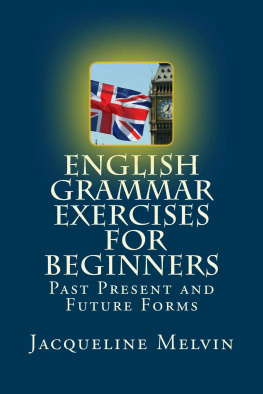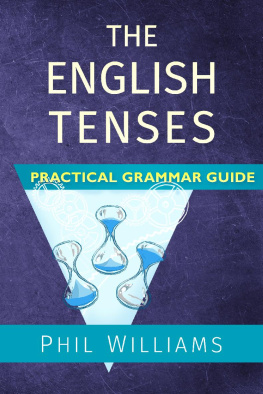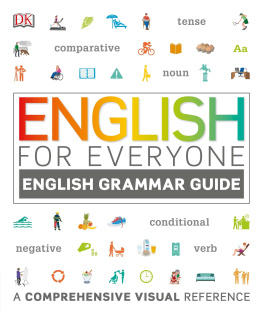We use the present tense for habits, facts, general truths, timetables and fixed events.
Grammar Focus/Present Simple Tense
We use the present tense for habits, facts, general truths, timetables and fixed events.
I have a car. (A fact - have is a state verb so can never be used as a habit unless used as a verb collocation -see collocations). I live in London. (A fact/this is a state verb) I like chocolate. (A fact/like is a state verb) I play tennis. (A fact or a habit) I get up early. (A fact) I get up early every day. (A habit) John sleeps a lot. (A fact) The coach to London leaves at 10am tomorrow morning. (Timetable/fixed) It is Janes birthday next Thursday. (A fact) To form the affirmative we need to remember: S . V . V .
O - this means: - s ubject / v erb/ o bject I sleep a lot . John sleep s a lot. In third person singular we need to add an s to the verb but only in the affirmative. The negative with auxiliary verb do To form the negative we use do not in all persons except third person singular. Third person singular is: he/she/it John is third person singular. John is a he .
For third person singular we use does not for the negative which becomes doesnt in the contracted form. We use do not for First person singular I Second person singular You First person plural We Second person plural You Third person plural They In spoken English, do not is contracted and becomes dont Lets now change the above examples into the negative I have a car/I dont have a car. I live in London/I dont live in London. I like chocolate/I dont like chocolate. I play tennis every Monday/I dont play tennis every Monday. I get up early every morning/I dont get up early every morning.
John sleeps a lot/John doesnt sleep a lot. As you can see the negative comes between the subject and the verb. To form the question we put do or does before the subject. Example Do I get up early every morning? Does John sleep a lot? In questions and negatives we remove the s from the verb in third person. The s is transferred to the auxiliary verb do which becomes does. The verb go is used as an example but it is the same form for all verbs except the verb be .
I go/I do not go/do I go? (1 st person singular) You go/you do not go/do you go? (2 nd person singular) He goes/he does not go/does he go? (3 rd person singular masculine) It goes/it does not go/does it go? (3 rd person singular neutral) We go/we do not go/do we go? (1 st person plural) You go/you do not go/do you go? (2 nd person plural) They go/they do not go/do they go? (3 rd person plural) Remember to use the contracted forms in the negative (see below) in spoken English.
| I/you/we/they | dont go |
| He/she/it | doesnt go |
The Question Do I go (First person singular) Do you go? (Second person singular) Does he go? (Third person singular masculine) Does she go? (Third person singular feminine) Does it go? (Third person singular - neutral, things, animals/time/space/distance etc.) Do we go? (First person plural) Do you go? (Second person plural) DO they go? (Third person plural) Remember! We use this same pattern for every verb except for the verb be.
Exercise - Present Simple Tense
Present Simple Practice Exercise - Daily Routines Put the verbs in the brackets into the present simple tense. Remember that in third person singular, we need to add s to the verb in the affirmative. Maggie Smith ________ (live) in a small town not far from London. She ________ (live) with her husband Simon and their two children.
Maggie________ (not work). Her husband Simon ________ (work) in London. Every morning Maggie ________ (get up) very early. She ________ (make) breakfast for the family. The children ________ (have) bread butter and jam and a glass of milk. Maggie and her husband ________ (have) toast with butter and marmalade and a cup of coffee.
After breakfast Maggie ________ (wash) the children and________ (dress) them. She quickly ________ (wash) her face and ________ (get dressed) and ________ (take) the children to the local primary school. She then ________ (go) home and ________ (clean) the house. First she ________ (make) the beds then she ________ (vacuum) the whole house. She then ________ (put) the dirty washing into the washing machine and ________ (switch) it on. While she ________ (wait) for the washing machine to ________ (finish), she ________ (iron) some of the familys clothes.
When the washing machine ________ (complete) its cycle, she ________ (remove) the washing and ________ (hang) it out in the garden to dry. Every morning her husband Simon ________ (drive) to the railway station and ________ (park) his car in the car park outside the station. He ________ (catch) the 8.15 train to London. He usually ________ (arrive) in London at about 8.45. The journey ________ (take) about half an hour. He ________ (work) in an office close to Paddington station in London.
It ________ (take) him about five minutes to walk from the station to his office. His working day ________ (begin) at 9am and ________ (end) at 6pm. The children ________ (be) at school until 4pm. Maggie ________ (not need) to cook for them at lunchtime. They ________ (eat) at school. Maggie ________ (have) a sandwich and some fruit for lunch.
At 3.30 she ________ (leave) the house and ________ (go) to collect the children from school. They all ________ (go) home and the children ________ (do) their homework. When they ________ (finish) their homework, they ________ (watch) TV or ________ (play) together. Simon usually ________ (arrive) home at about 7.30pm and they all ________ (have) dinner together. Maggie normally ________ (cook) some meat and vegetables. The children ________ (go) to bed at 10pm and Maggie and Simon ________ (watch) a movie on TV and then ________ (go) to bed about 11.45.
Answers Maggie Smith live s in a small town not far from London. She live s with her husband Simon and their three children. Maggie do es nt work. Her husband Simon work s in London. Every morning Maggie get s up very early. She make s breakfast for the family.
The children have bread butter and jam and a glass of milk. Maggie and her husband have toast with butter and marmalade and a cup of coffee. After breakfast Maggie wash es the children and dress es them. She quickly wash es her face and get s dressed and take s the children to the local primary school. She then go es home and clean s the house. First she make s the beds then she vacuum s the whole house.






